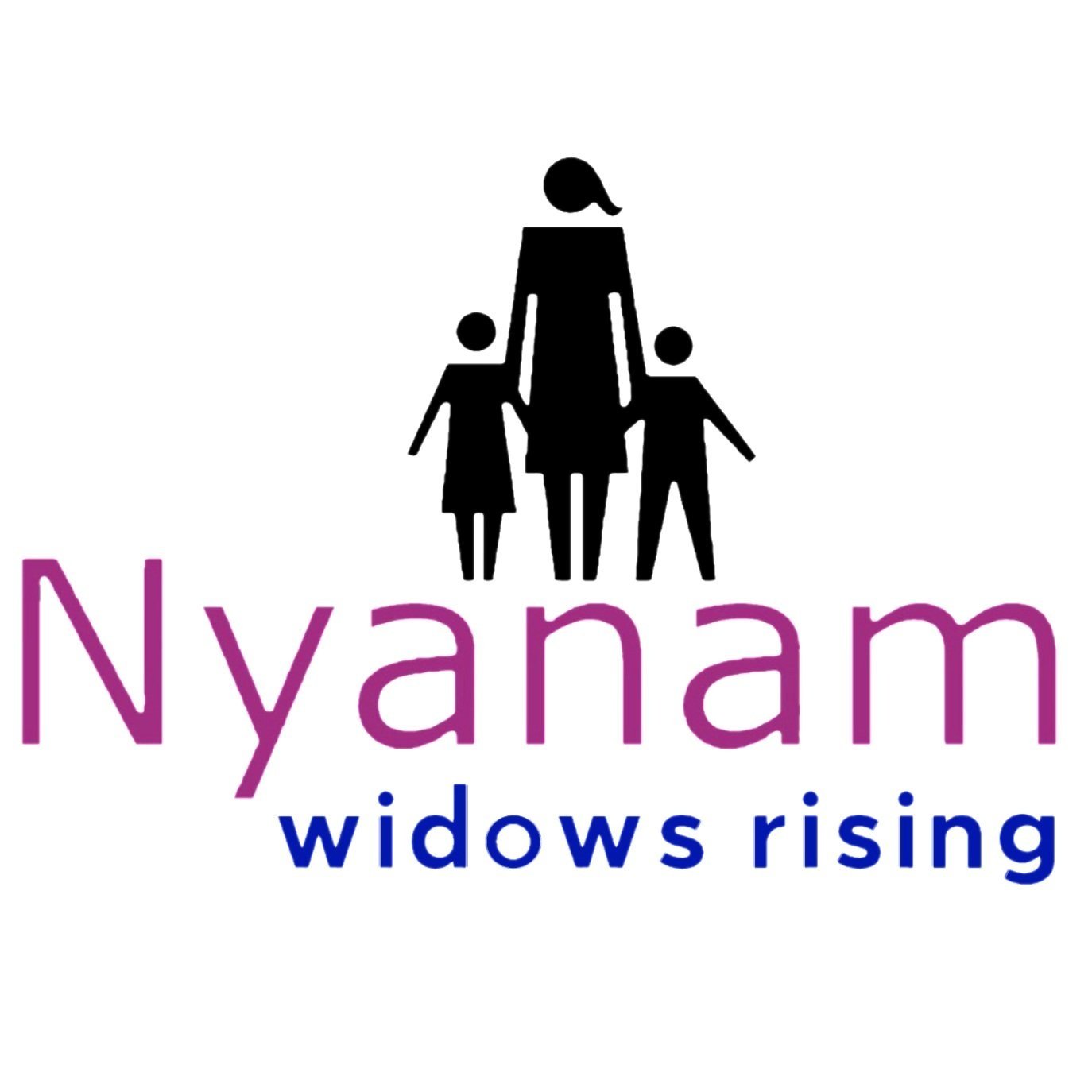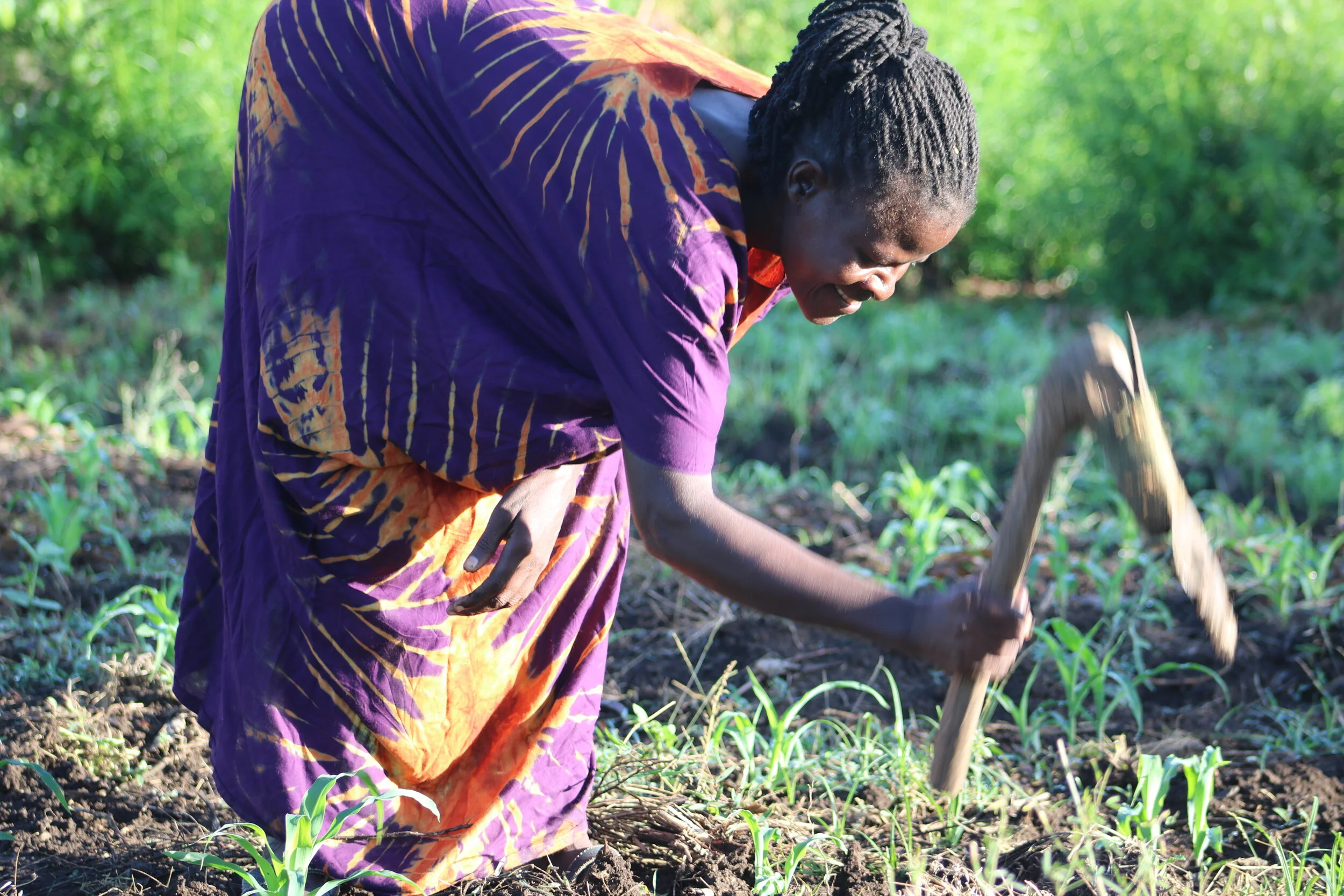A Widow’s Resilience Story
Agnes, a resilient widow tilling her small farm.
Photo credit: Evelyn Odhiambo, Positive Voices
By Jackie Odhiambo
In 2017, we invited widows to form widow-to-widow support groups to develop ways of supporting each other. The marginalization of women, particularly widows, caused us to rethink our community development strategies. We wanted to create spaces and opportunities for widows to support each other, and to be nurtured as female change-making leaders in their community. Motivated to improve their social, cultural, and economic situations, the 80 widows in attendance of this meeting unanimously agreed to form widow support groups.
Asiri is one of the widows who attended this first meeting. In Luo, Asiri’s native language, the term widow is ‘chi liel.’ Literally translated, ‘chi liel’ means ‘wife of the grave.’ The implication of this label on Asiri’s self and social perception, expectations, and actions need exploration. Nonetheless, Asiri with the rest of the widows in her leadership circle were not proud of this label. Their first decision was to reject ‘chi liel’ and re-label themselves ‘chi Ruoth ma jahera.’ ‘Chi Ruoth…’ (wife of the Lord) reflects the widows’ perception of God as the husband to the widows (Isaiah 54:4), and their decision to place their hope in God instead of the grave. ‘Ma jahera’ (loving) reflects the widows’ primary desire: to give and receive love. Since that initial meeting, Asiri with her widow sisters have used this new label to challenge each other towards honourable and loving acts and lifestyles.
BREAKING THE SILENCE
Asiri and the other widows knew the grave was silent about their plight but God was not. Up until that first meeting, the widows in Asiri’s village, some 30 years old and others 84 years old, had never gathered to share their stories. This saddening silence on the welfare of widows exists far beyond Asiri’s village. In 2000, the United Nations (UN) described widows as ‘invisible women’ whose personal, socio-cultural, and economic predicament needed intervention but received little attention. The UN noted that widows remained unmentioned in global publications on women’s poverty, development, health and human rights. Data on their wellbeing was difficult to come by at national levels. Organizations that supported widows scarcely reported on the process and impact of their interventions. For Asiri and her widow sisters, this new label, ‘chi Ruoth ma jahera’ was the beginning of a change. The label strengthened their voice and they began to lift the lids on unspoken cultural, economic and social injustices. Their widowhood conversations have stimulated emotional and social healing journeys for some of the widows.
NAVIGATING SINGLEHOOD
Like her widow sisters, Asiri began her widowhood with grief and sorrow. She felt the deepest absence of her husband, Osiri, the moment the villagers lowered his coffin in the grave. She no longer had her companion, her confidant and her trusted friend. She could have given up all that was possible to have Osiri back. But glancing at her tearful children, she began to worry. How on earth was she to feed, clothe and educate her children when Osiri was their sole provider? ‘Atim nang’o?’ (How will I do this?) She cried. With the village rumouring that she had killed Osiri, a blame many widows experience after their husbands’ death, support from her relatives would be unstable if not unavailable.
PRESSING BASIC NEEDS
To feed and school her children, Asiri sold a piece of land she had cultivated since her marriage with Osiri. Her relatives opposed her decision and grabbed the rest of her properties, describing her as careless, irresponsible and jeopardizing the future of her children. Left with a tiny piece of land and facing the harsh realities of climate change, her subsistence farming grew less reliable for her family needs. Without enough food in the house, her eldest son dropped out of school and joined the fishing folk in Lake Victoria. The boy felt the need to support his mother in raising his siblings. But, he soon got trapped in the alcoholic culture of the fisherfolk. Asiri laments the loss of her son to drunkenness. Asiri’s daughter, while looking for ways to meet her feminine needs such as sanitary pads, got trapped in a transactional sexual relationship that left her pregnant at the age of 14 years. Fear, shame, poverty and the hope for a better life in her own house drove her to early marriage.
ECONOMIC INJUSTICE
To save his youngest son’s future and keep him in school, Asiri began fish vending. Fishing had been among the major sources of livelihood in the Lake region up until the lake was overfished and the government introduced fishing ban for four months annually. Because of the low fish harvest, competition among women fish vendors is stiff. A fisherman once asked Asiri for sexual favors for her to bypass the competition and secure a supply of fish from his boat. Asiri refused. She knew of ‘Jaboya’, a sexually exploitative economic system in which fishermen demand sex in addition to cash payment in order to supply women fish vendors with fish, but she never imagined she would be a target. The fisherman described Asiri’s sense of self-worth and dignity as baseless pride that will not keep her son in school. Eventually, Asiri’s youngest son followed in the steps of his elder brother. Every often Asiri reminisces on how different life would be with Osiri. She looks at her grandchildren, and wonders if they will escape the cycle of illiteracy, poverty, drunkenness and early marriage that persists in her community.
CULTURAL INJUSTICE
At one point, Asiri’s house was falling apart. Asiri’s father- and brothers-in-law pressured her to find ‘someone’ to build her a new house. In her Luo culture, such responsibility for supporting a widow socially, economically and with raising her children would be for her brother-in-law, within a social support system for widows called ‘ter’ (widow inheritance). Sex would only be part of ‘ter’ at the discretion of the widow. But modernization and the high prevalence of HIV in Asiri’s community where one in five people is HIV infected changed the practice of ‘ter.’ By ‘someone’, her relatives meant a crop of men known as ‘professional widow inheritors’ who have commercialized the practice, demanding unprotected sex with multiple widows concurrently and exploiting the widows economically. If Asiri refused such an arrangement, she would be blamed for all ills that could befall her family. Asiri desired re-marriage but that would be perceived as rejecting her first husband’s family. Her father’s household was not ready to have her back home and, with three children, she was socially undesirable for re-marriage.
IMPROVING HEALTH
Two years after her husband’s death, Asiri discovered she was HIV positive, and unsure from whom had she contracted the virus, between Osiri and her widow inheritor. More than 60% of HIV positive women in the Lake Victoria region are widows, a health burden to the widows and their families, but also to the national health system that heavily relies on donor support to provide HIV treatment. The majority of the HIV positive widows discover their HIV status after the death of their husband. One in five of Asiri’s widow sisters is HIV positive. She admired the widows who, using their Christian faith, rejected widow inheritance and endured and overcame isolation from their kins. She longs to teach such courage to her daughter and granddaughters.
TAKING ACTION
Nyanam seeks to make the heart of Asiri and her widow sisters sing. We will do this by honoring widows with stories that highlight their vulnerabilities and strengths. In a leadership development program that we will implement beginning July 2019, we will create spaces for widows to critically analyze and develop in their spiritual, social, economic and cultural positions, in light of their God-given dignity. The majority of the widows in our context are Christians and few, who are role models, have used their faith to liberate themselves from oppressive social and cultural norms. The training will amplify the voice of widows using faith in Christ as a foundation for resilience, to grow the widows’ confidence in positive social change, and facilitate their engagement with their community to challenge oppressive norms using creative and practical solutions.

